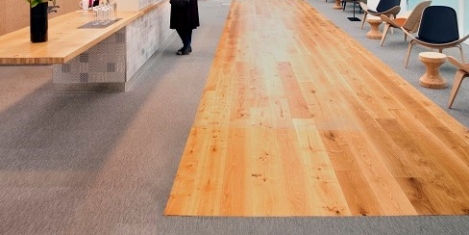May 31, 2019
Commuters receive little help from employers to alleviate their stress
 Over a third of respondents (36 percent) to a new survey report they are commuting for more than 90 minutes a day; yet despite a high demand for employer provisions to help alleviate the stress of the commute such as flexible or remote working and season ticket loans, 43 percent of employees stated that these were not currently offered by their employer. The Commuter Survey from Office Space in Town also claims that among the top commuting complaints were: lengthy journeys (32 percent); overcrowding (27 percent) and delays and frequent cancellations (26.01 percent). With the survey also revealing 75 percent take the commute into account when making their employment decisions, there is a lot that employers could be doing to minimise the negative impact on employee attraction and retention.
Over a third of respondents (36 percent) to a new survey report they are commuting for more than 90 minutes a day; yet despite a high demand for employer provisions to help alleviate the stress of the commute such as flexible or remote working and season ticket loans, 43 percent of employees stated that these were not currently offered by their employer. The Commuter Survey from Office Space in Town also claims that among the top commuting complaints were: lengthy journeys (32 percent); overcrowding (27 percent) and delays and frequent cancellations (26.01 percent). With the survey also revealing 75 percent take the commute into account when making their employment decisions, there is a lot that employers could be doing to minimise the negative impact on employee attraction and retention.













 A third of your life is spent at work, but what determines your workplace well-being? That’s the question that Dr. Martin Boult, Senior Director Professional Services & International Training,
A third of your life is spent at work, but what determines your workplace well-being? That’s the question that Dr. Martin Boult, Senior Director Professional Services & International Training, 





















May 28, 2019
A sophisticated eye on workplace design
by Mark Eltringham • Comment, Facilities management, Workplace design
(more…)